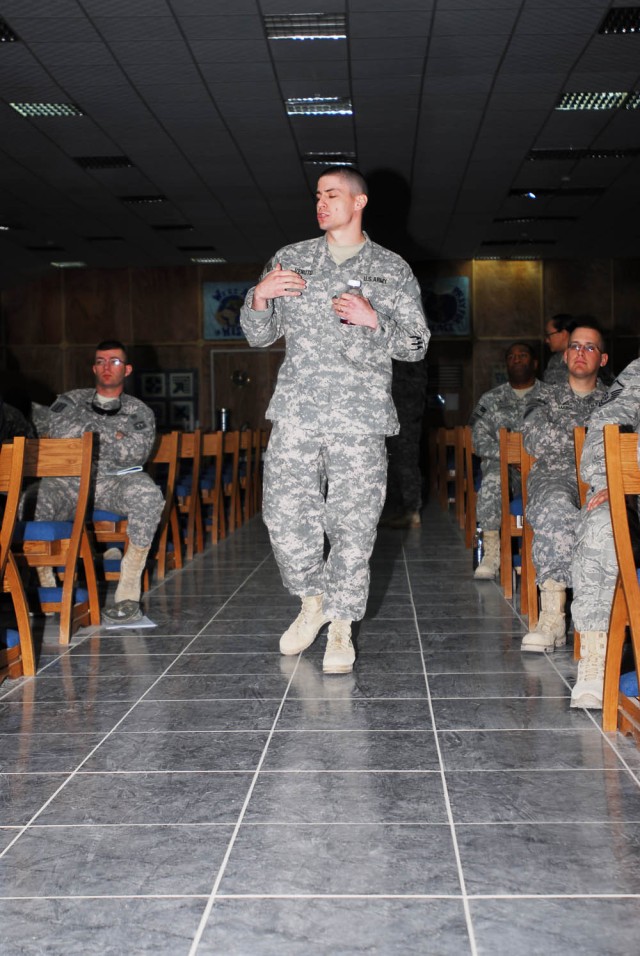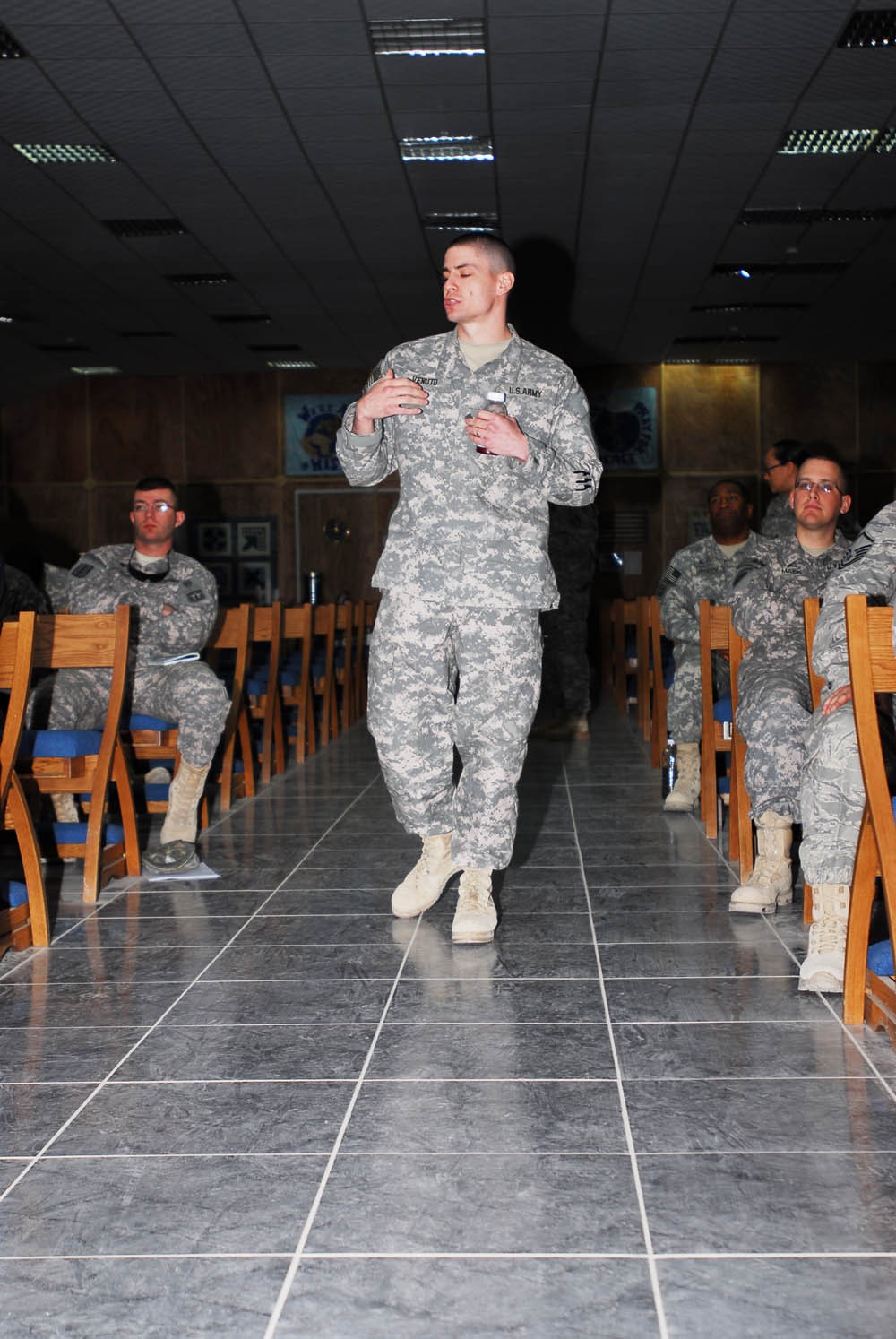Warrior Resilience and Thriving is an educational class designed for servicemembers to enhance their resiliency and improve their ability to deal with and thrive after traumatic experiences.
Instruction in WRT includes basic rational emotive behavior therapy, Army leadership principles governing emotional balance and control, and character strengths and virtues that promote warrior ethos.
All the qualities are essential for servicemembers to be balanced.
According to the program, the first essential quality is endurance. The ability to press on even after you fatigue and tire - not just physical fatigue but the mental and emotional burden that comes from enduring multiple deployments - and still achieve the Army standards.
The second essential quality is resiliency. Resiliency is being able to bounce back from adversity. "Like what Rocky Balboa said, it's not a matter of how hard you can hit, but how hard you can be hit and still move forward," said Staff Sgt. Michael Venuto, noncommissioned officer in charge, Warrior Resilience and Thriving, 98th Medical Detachment (Combat Stress Control).
The third component is character. Not like the character of a book, but a character of moral excellence. Character is formed by accepting and applying key morals such as the Army standards of honor, loyalty, personal courage, respect, duty, selfless service and integrity.
The fourth and final building block of the program is thriving through post-traumatic growth. Through life we experience possible traumatic events which give us the opportunity to grow.
Our relations to others are critical to learning and growing in character through any event. These experiences give you the chance to develop stronger bonds with love ones and even reestablish relationships with estranged family members and friends. In addition, you can gain compassion for others, especially those who have suffered in similar situations. "Experiencing a possible traumatic event can change your perspective on things," said Maj. Thomas Jarrett, officer in charge, WRT, 98th Med. Det. (CSC). "You have more empathy."
Post-traumatic growth is not a negative aspect of life. Although the conditions you experience may have been unpleasant, if you have the right altitude and mind-set you can grow in character living life to the fullest.
Resiliency is a matter of perspective. "Imagine your perspective is a lens," Jarrett said. "If your lens is scratched then you need to repair your lens. What we are trying to do is correct people's perspective."


Social Sharing